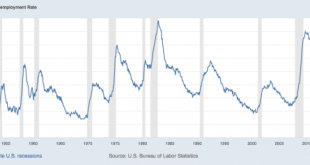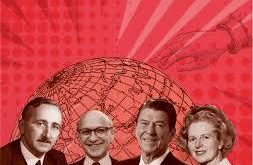from David Ruccio Capitalist crises are neither predictable nor do they stem from a single cause. Instead, at least as I see it, the possibility of a crisis is always there but the causes and triggers are all historical and therefore multiple and varied. Sometimes, crises in capitalism stem from difficulties in extracting more surplus from workers and a resulting fall in corporate profit rates; at other times, they are caused by the bursting of speculative bubbles and a run on funds...
Read More »Differences in theoretical methodology: equilibrium vs. complexity vision
from David Colander and RWER no. 91 The two visions draw lessons from theory differently, and are associated with quite different research programs, especially as they relate to policy. The equilibrium vision sees formal theory as providing a necessary blueprint for policy. Franklin Fisher (2011) nicely captures this view. He writes, “It is not an overstatement to say that they (the general equilibrium welfare theorems) are the underpinnings of Western capitalism… So elegant and powerful...
Read More »Coronavirus deaths by country – March 22, 19:00 GMT
Economics beyond neoliberalism
from Lars Syll We welcome Naidu, Rodrik, and Zucman’s contribution and the debate it has inspired. We share much of their agenda for an economics “beyond neoliberalism” … Nonetheless, we believe that Naidu, Rodrik, and Zucman do not go far enough in their calls for reform. The vision they paint is still focused on the discipline of economics and anchored in the core ideas of neoclassical theory that dominated the field in the twentieth century … The behavioral economics critique of the...
Read More »COVID-19 depression antidote
from Lars Syll [embedded content]
Read More »Dark times
from David Ruccio Motto In the dark times, will there also be singing? Yes, there will be singing. About the dark times. – Bertolt Brecht ( trans. John Willett, from the Svendborg Poems) I’ve been on a bit of a hiatus for the past two months (the last real post, aside from daily cartoons, was back in January). But readers have encouraged me to get back in the game and resume my “occasional” commentary on economics, culture, and society. Right now, in these dark times—as the number of...
Read More »Coronavirus deaths by country – March 20, 19:00 GMT
The problem of weak first principles
from Bernard Beaudreau and RWER #91 Economics is both a social and non-social (pure and applied) science, social in its quest to understand human behavior in the realm of goods and services, and non-social in its understanding of material processes – that is, the way in which goods and services (our bread and butter) are produced. It therefore stands to reason that for it to be successful, it must decipher how human beings think, and second, how inanimate material processes behave. It...
Read More »Issue 91 of real-world economics review
real-world economics review Please click here to support this journal and the WEA – Subscribers: 26,420 subscribe RWER Blog ISSN 1755-9472– A journal of the World Economics Association (WEA) 14,468 members, join – Sister open access journals: Economic Thought and WEA Commentaries– WEA Online Conferences back issues issue no. 91 16 March 2020download whole issue Complexity, the evolution of macroeconomic thought, and micro foundationsDavid Colander 2 Models and reality: How did models...
Read More » Real-World Economics Review
Real-World Economics Review




